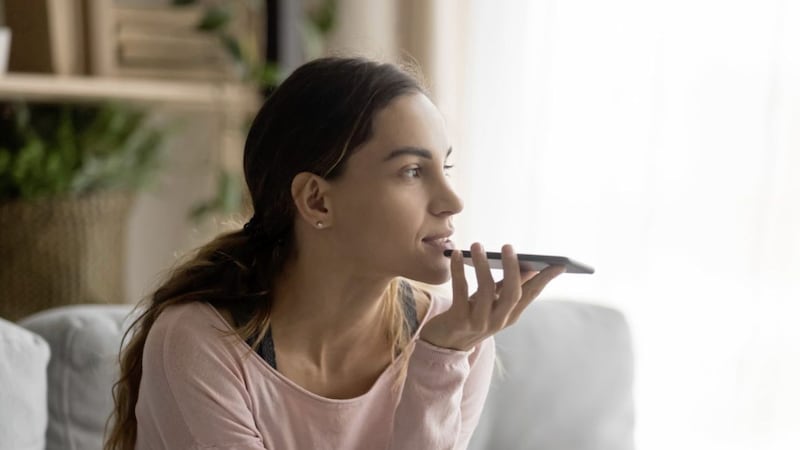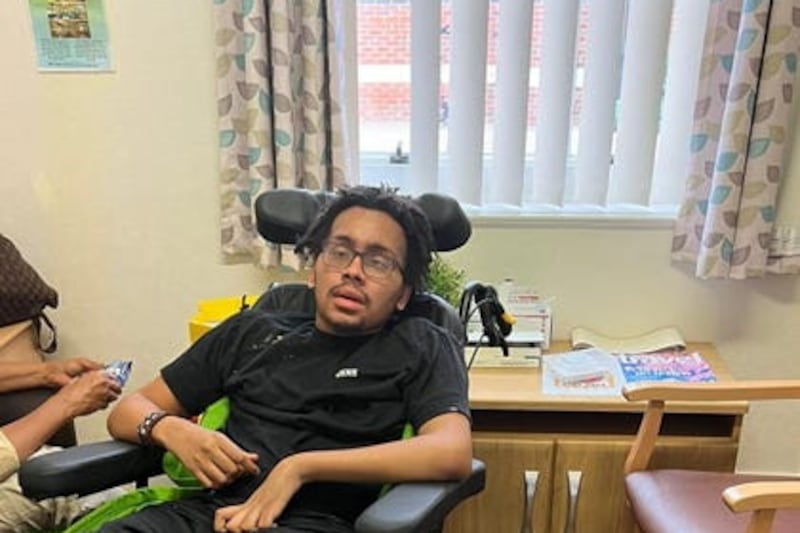THIS year, my local park has become my leisure centre, social hub and recharge point. I’ve sat and sobbed in it, strolled and snort-laughed listening to the Guilty Feminist podcast, had soul-soothing video chats with faraway friends and sipped coffee from a flask on a muddy mound when the walls at home were closing in. So perhaps it stands to reason it would eventually play host to therapy sessions too.
Counselling is something I’ve dipped in and out of over the past few years to help support my mental health – but normally that means sitting in a room with someone and talking face-to-face. Now, like so many things, where possible, it’s gone remote. My weekly sessions now happen over the phone as I walk around the park.
While some talking therapies were already potentially available remotely, the pandemic has naturally triggered a wide-scale shift, so people can still access these services while avoiding travel and minimising infection risk. So, how does it compare, and what’s it like? Well, that probably depends on a lot of things.
Therapy – whether it’s counselling, CBT-based talking therapy, long-term psychotherapy, etc – is a very personal process. Whether remote or in-person sessions are a better fit will likely vary from person to person, with a host of factors playing a part. But if you’re curious or thinking about giving remote therapy or online therapy a go, here’s some food for thought…
:: Does remote therapy feel different?
Judy (38) had been seeing a therapist weekly since September 2019. They switched to video calls when the first lockdown hit, when Judy also moved back home with her mum. She admits she “had reservations” at first.
“I quite liked the physicality of going to the same place every week and sitting opposite my therapist, then walking out the door at the end and leaving what was said behind in the room. It helped separate everything that was coming up from spilling into my real life,” she explains.
“I was also in lockdown with my mum, and even though I chose to have the sessions upstairs, it was off-putting if I heard her in the next room. But I just had a chat with her and asked if she’d stay downstairs, which was helpful.”
As for whether the sessions felt different, Judy says: “I found at first it felt a bit surface-level online; initially the sessions felt quite chatty and technical issues, like time delays or poor wifi signal sometimes got in the way, but they were really just teething problems. I soon found I didn’t notice that we weren’t in the same room and relaxed into it.”
One “huge perk” was not having to get on public transport after more intense sessions, or head straight back to work. “This time around I could rest, have a cup of tea or take a nap, and that really helped me process things and regain some balance before getting on with my day. I could also relax and prepare for the session beforehand, rather than dashing from work.
“I think if you have a therapist you trust, it really doesn’t matter,” Judy adds. “But I am glad I built up that trust in person first, I think that made the transition to online easier.”
:: There may be surprise silver linings
That’s not to say others won’t find starting remote sessions from scratch beneficial. I’d not ‘met’ my counsellor before our phone sessions started – and I’m certainly grateful for them. The convenience factor can be a big benefit for many people too.
Holly (39) had previously had in-person sessions with a psychologist for about six months back in 2018. “I found the sessions really beneficial, but [it was] tricky trying to find the time to go to the appointments and sort childcare. I often took my youngest with me, which was not always easy.”
Earlier this year, she decided to pursue sessions again, to help with anxiety issues that had surfaced. “As we were in the middle of lockdown and my previous psychologist was now on maternity leave, I now had the option to see another psychologist who was located further away from my home.
“I found these sessions, conducted over Zoom, much more relaxing,” says Holly. “I was able to fit them around the kids much more easily – now I didn’t have to spend time travelling to the appointment, and my husband could take the kids out over lunchtime, as he was now working from home.
“Not being face-to-face was not an issue,” she adds. “It felt completely the same, if not nicer, as I was in my own environment.”
:: Keen to give remote therapy or counselling a go?
:: I have no spare money – are there free or super low-cost options?
First, talk to your GP, as they can make referrals for talking therapy. While waiting lists may apply, referrals for short-term weekly sessions, where suitable, can sometimes be arranged relatively swiftly.
If you have a job, ask your HR department whether there’s an Employee Assistance Programme. Many of these include access to counselling services, which are totally free, confidential and arranged via an external organisation – so your line manager won’t have anything to do with it! Your company may also offer a health insurance package that could cover mental health services.
Mental health charities in your local area may also provide services that are either free or available at reduced cost, depending on your circumstances. Google your local branches of Mind, Anxiety UK and Rethink Mental Illness for starters. There may be waiting lists, but more therapists may be offering their services at waived or heavily reduced prices right now, due to the rise in demand this year.
:: I can pay – but where do I start?
If you want to find a local private therapist – so there may be an option of switching to in-person sessions in future – Google may be a good place to start (but do always check their qualifications and experience). Counselling Directory (counselling-directory.org.uk) is a handy website, where you can search for qualified therapists and counsellors. As well as searching by area, you can look for experts with experience of specific issues or therapeutic approaches.
Many health groups are offering online and remote therapy and counselling services too – such as Nuffield Health (nuffieldhealth.com/mental-health-support) and Bupa (bupa.co.uk/mental-health).








